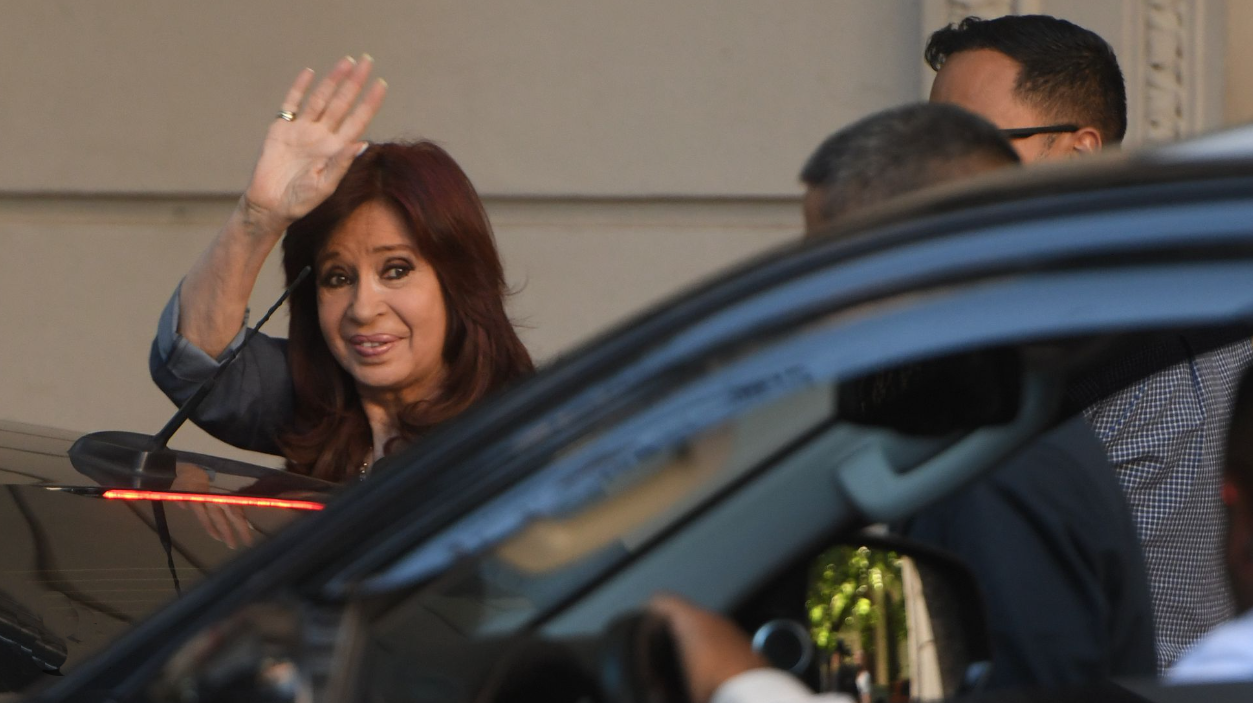Cristina Fernández de Kirchner was sentenced to 6 years of imprisonment and a lifetime ban from holding public office for the crime of fraudulent administration to the detriment of the public administration, in the so-called “Causa Vialidad”. In the court case, initiated almost four years ago, it was ruled that from 2009 to 2015 the presidencies of Cristina de Kirchner fraudulently and spuriously directed exorbitant amounts of money destined for public road works to a company linked to the Kirchner family. This company – Austral Construcciones – was created during the presidency of Néstor Kirchner and run by a former bank employee – Lázaro Báez- with no previous experience in the field. Together with Cristina, Lázaro Báez and other persons related to these events were convicted.
In October, the prosecution requested for the vice president a sentence of 12 years of effective imprisonment for the crime of directing an illicit association to the detriment of the state. Although the defense had time to refute the charges, many media argued that the strategy consisted more in denouncing political persecution, and lawfare style, than in proving the falsity of the accusation.
The final stage of this process was the reading of the verdict by a federal court composed of three judges, two of whom rejected the charge of illicit association and based the conviction on fraudulent administration. The third judge, who upheld the illicit association, approved the decision in dissent.
After the ruling, Vice President Cristina Fernández de Kirchner addressed the public through social networks, arguing again that the ruling is the product of political persecution of her person, similar to the political persecution of other popular leaders in Latin America recently. She also stated that the “persecution” goes against the defense of popular interests that these leaders have embodied in the last two decades in the region. Cristina also affirmed that these attacks are structured by de facto powers articulated between judicial sectors, economic corporations, right-wing parties, and the interference of North American political sectors.
The vice president, her political sector, and her allies had been arguing for some time, as the end of the trial and the promulgation of the verdict approached, that everything was fabricated, a persecuted cause of the same anti-popular powers in Argentina. Therefore, the conviction was inevitable but given the aforementioned context, illegitimate and politically perverse.
Meanwhile, for the political opposition, business and media sectors, leftist groups and organizations, and part of the civil society, the trial and its possible conviction is nothing but the ultimate evidence of a matrix of corruption that crossed the three “Kirchnerist” presidencies (the first one of Néstor Kirchner, the other two of Cristina).
Four fundamental aspects emerge from the ruling. First, Cristina’s prison sentence is not effective for the moment. Beyond the continuity of judicial instances, the vice president is, according to the Argentine Constitution, the President of the Senate and, therefore, has parliamentary immunity. Likewise, the disqualification to hold public office will not be sustained given the foreseeable judicial instances (Courts of Appeals, Supreme Court) that may last for years.
On the other hand, the “Vialidad” case, whose first instance was closed yesterday, is linked to two other cases – “Hotesur” and “Los Sauces”- which, according to the prosecution, involved money laundering through rentals of the Kirchner family’s properties rental, as they came from the substantial funds “returns” obtained from the concessions of public works to Austral Construcciones. Cristina’s two sons are involved in these two cases, as they were part of the family’s business associations.
In the days prior to the verdict, from the political structure of Kirchnerism and allies, it was pointed out that if the vice president was convicted, there would be political and social outbursts, from popular demonstrations, the occupation of judicial offices, and marches to the federal courts. In addition, it was pointed to the “paralyzation of the state and the administration” due to the action of the state workers. The truth is, for the moment, none of this has happened.
In her speech on networks after the ruling, Cristina announced that she will never again be a candidate for anything, in line with what had been mentioned and insinuated recently about a presidential candidacy for the October 2023 elections. Nevertheless, beyond the real meaning of this resignation, the ruling opens an uncertain political panorama in Argentina.
*Translated from Spanish by Janaína Ruviaro da Silva













